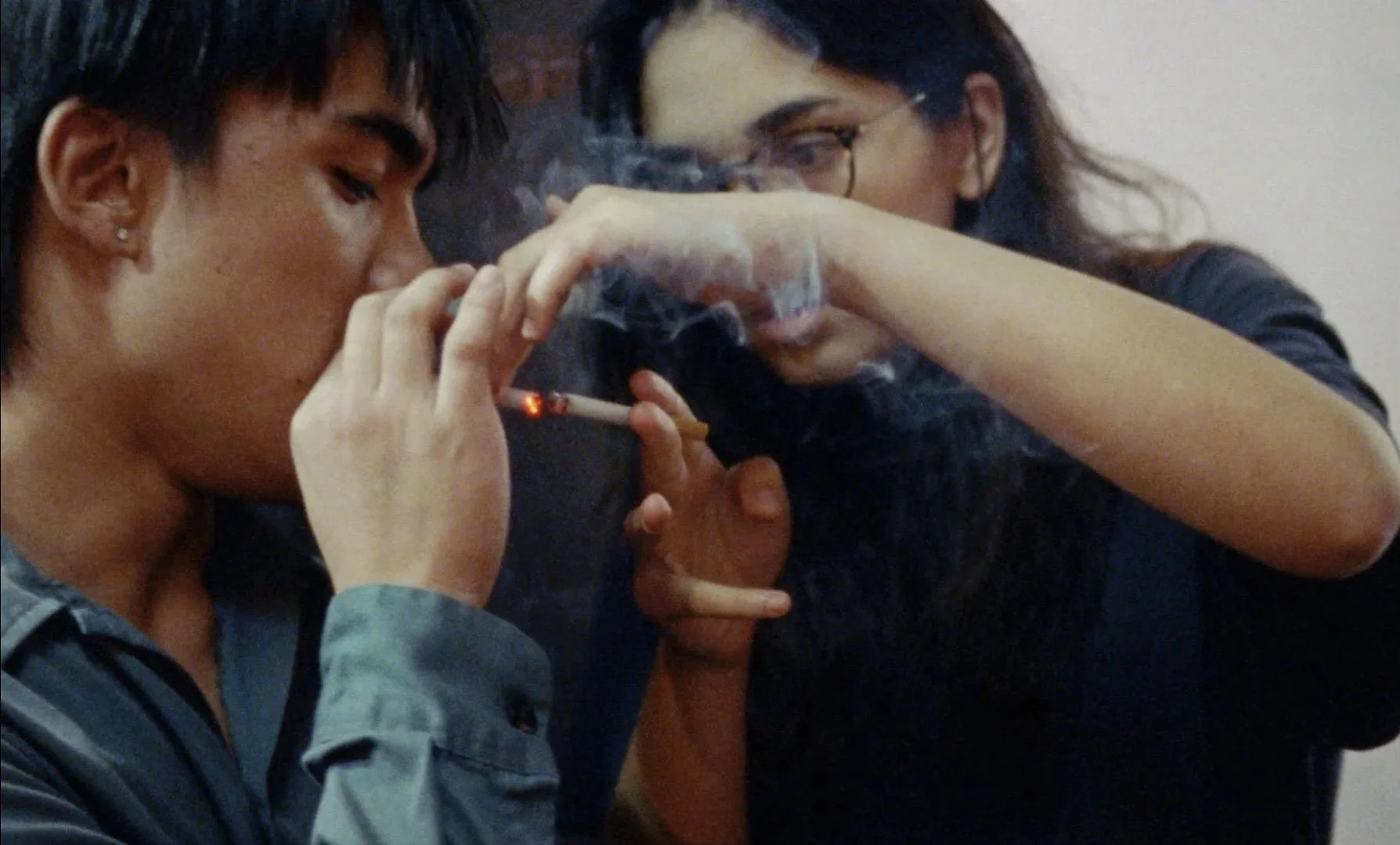AAIFF: “Softshell” Brings Back the Magic of Mumblecore
This film contains graphic content in the form of violence toward animals. Viewer discretion is advised.
Jinho Myung’s debut feature, Softshell, is playing as part of the 48th Asian American International Film Festival. It’s a soft, meditative look at the cliff of adulthood and the view from the edge. Softshell tackles loneliness in a city that rarely lets anyone experience a moment of solitude. It’s a special film that feels like it toes the line between documentary and fiction, one that speaks to our contemporary loneliness epidemic, but also feels timeless.
Jamie (Caledonia Abbey) and Narin (Legyaan Thapa) have just lost their mother. They’re two twenty-somethings living in New York City and, like most people their age, are confused, lonely, and sad in a profound way. Jamie loves animals and has just started a job at the local zoo, while Narin continues to work at the neighborhood jiu-jitsu gym. Softshell is not a movie with a strong, guiding plot. Instead, it’s a film about a series of moments in the lives of these two siblings as they navigate the simple difficulty of existing as a human.
Softshell was shot on 16mm with all the warmth of the spirit of independent films of the ’90s and 2000s. It’s the essence of mumblecore, but somehow refined without losing the roughness that is the ethos of guerilla filmmaking. It’s hazy in a way that feels like a memory that’s both our own and from a different life. Softshell is about the struggle of trying to find an identity in a world that seems to be changing at the speed of light. It’s listless in the way the early twenties can be. When jobs aren’t really real and you can hang out for hours.
courtesy of Softshell
As Jamie and Narin work through the loss of their mother and the general difficulty of being an adult, they’re also dealing with being Thai-American young adults. Their identities are fetishized by friends, lovers, and strangers. Jamie struggles to feel connected to the language of her country, stumbling through sentences that flow easily out of her brother’s mouth. Beneath the awkward jokes is the uncomfortable reckoning that goes along with different cultures coming together. Softshell touches on the relationship between humans and the animals we care for, as well as the animals we consume. Some might take offense at the brutal nature of one of the scenes toward an animal. It’s tough to stomach, but is that because we’re used to distancing ourselves from where our food comes from or because it’s different from the way we’ve been culturally raised? The scene in question doesn’t feel as though it exists merely for shock value, but it will cause discomfort. Softshell encourages viewers to look at this action, and similar scenes prior, and figure out why they’re reacting the way they are. It’s never a film that hits the audience over the head with what it wants them to get out of the scene. Instead, it lets them live through what these characters are experiencing. This is often uncomfortable, but it’s also a series of circumstances that aren’t out of the realm of possibility for Asian-Americans.
Softshell is impressively naturalistic. Borrowing from mumblecore magic, Myung introduces a new perspective to this genre. The film offers a warmth toward its characters in a world that’s harsh. As they’re reeling from their grief, Jamie asks if they can go to the aquarium in Atlanta. It’s a trip that’s healing in an unexpected way, a reminder that the world is both small and large. Softshell is unflinchingly open in its exploration of the ways people exist in the world as we know it today. This film is personal and intimate, and it gets under your skin.
support your local film critic!
~
support your local film critic! ~
Beyond the Cinerama Dome is run by one perpetually tired film critic
and her anxious emotional support chihuahua named Frankie.
Your kind donation means Frankie doesn’t need to get a job…yet.
Follow me on BlueSky, Instagram, Letterboxd, YouTube, & Facebook. Check out Movies with My Dad, a new podcast recorded on the car ride home from the movies.

